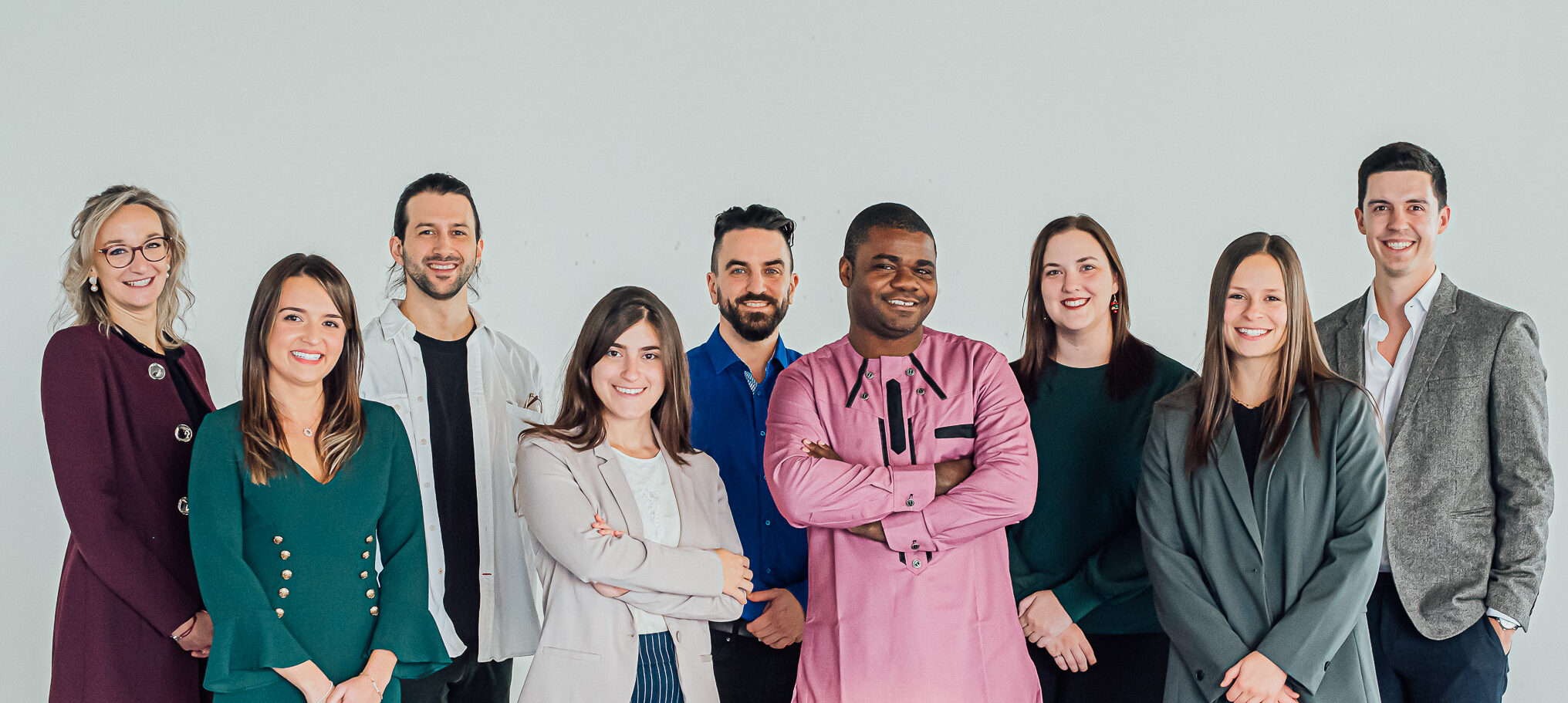Our Common Future in the Age of Generative AI: The Need for Responsible Scaling of Large Language Models (LLMs) in Africa

In the past few years, we have witnessed a tremendous shift in the world of technology with the rapid evolution of the AI solutions landscape, particularly with the advent of generative AI tools like ChatGPT, MidJourney, and DALL-E. These systems, designed to create new content such as text, images, and code, have sparked both enthusiasm and apprehension. However, generative AI’s impact is far from being uniform across the globe. Different communities face unique challenges and opportunities due to its rise, based on their socio-economic conditions, access to technology, and governmental regulations. At the first edition of the ALL IN Conference held, in September 2023 in Montreal, these preoccupations were already at the heart of the ‘Our Common Future in the Age of Generative AI’ panel. This blog post aims to build on this discussion by focusing on LLMs in the African context.
LLMs in the African Context: A Double-Edged Sword
Large Language Models (LLMs) like OpenAI’s GPT series, Google’s Bard, and Meta’s LLaMA have sparked immense excitement across the globe. These models, which are built on vast datasets and trained to generate human-like text, are revolutionizing industries, augmenting creativity, and transforming the way we interact with technology. In Africa, LLMs offer numerous avenues for positive impact in sectors such as healthcare, education, and governance, and could enhance multilingual communication across Africa’s diverse linguistic landscape.
- In education: LLMs could also revolutionize education by offering personalized learning experiences to students, tailoring content based on their learning pace, style, and interests. Such models could bridge the gap in educational access in underserved regions, providing high-quality educational materials in multiple languages and empowering students who might otherwise lack resources.
- In public administration: Another hopeful area is the use of LLMs in public administration. Governments could use LLMs to streamline bureaucratic processes, improve citizen engagement through AI-powered chatbots, and enhance access to public services. By easing administrative burdens, LLMs could improve governance efficiency and transparency, promoting good governance globally.
- For language and communication: LLMs could be used to create highly accurate and scalable natural language translation tools, removing language barriers across the continent by allowing people from different linguistic backgrounds to communicate seamlessly, thereby fostering greater global understanding and collaboration.
- In healthcare: LLMs could be used to sift through extensive medical research, generate personalized health recommendations, or assist doctors in drafting reports.
The transformative potential of LLMs is undeniable; these opportunities have the potential to enhance human capacity, democratize access to knowledge, and foster innovation across industries. However, the rapid growth of LLMs also presents significant challenges and risks, particularly in regions such as Africa where many countries face challenges such as limited computational infrastructure, data scarcity, and skills gaps in AI development and to fully leverage LLMs. Beyond the traditional challenges known in Africa, the most significant challenges in relation to LLMs that we have identified are:
- Algorithmic bias: These can perpetuate harmful stereotypes or marginalize underrepresented groups. In Africa’s case, this is particularly reinforced, as the majority of LLMs are trained on data in dominant global languages and large datasets scraped from the internet. They may inadvertently learn and replicate biases present in those datasets and potentially sidelining African languages and cultures. To address bias in LLMs, African nations must invest in curating localized datasets that reflect the linguistic, cultural, and societal realities of the continent (CEIMIA, 2024).
- Proliferation of disinformation: Another pressing concern. With the capability to generate convincingly realistic text, LLMs can be used to produce deepfakes, spread false information, or create misleading content, threatening the integrity of our information ecosystem.
- Privacy issues: They arise as these models are often trained on vast amounts of data without clear consent from individuals whose data is being used.
- Energy-intensive training models: The environmental impact of training and deploying large-scale AI models, especially LLMs, adds another dimension of concern.
Due to all these challenges, there is currently a risk that benefits of AI (LLMs in particular) could remain concentrated in the hands of a few powerful entities, leading to widening digital divides for people and countries most in need.
A call to a Global AI Governance: a Collective Effort to Mitigate Risks
The rapid evolution of AI demands a proactive approach to managing its risks and maximizing its benefits. The key, as the UN report points out, is to ensure that global governance frameworks allow for the ethical and responsible deployment of LLMs, ensuring that their use remains in line with human rights and that no one is left behind in the AI revolution. Without proper governance frameworks to manage AI’s risks, LLMs could entrench biases, infringe on privacy rights, and contribute to surveillance abuses.
Therefore, a multi-stakeholder approach is necessary to mitigate the societal and ethical risks posed by these models, and this involves governments, the private sector, and civil society all playing critical roles.
- Government Regulation: Governments must establish clear regulatory frameworks for the deployment of LLMs. These regulations should address issues like algorithmic transparency, ensuring that models are explainable and auditable. Governments also need to promote data privacy standards that protect citizens from having their data used without consent in training these models. The UN’s emphasis on global cooperation is particularly important in this regard, as fragmented regulations across borders could lead to ineffective governance.
- The Private Sector: Given that much of the development of LLMs is spearheaded by large tech companies, these organizations must take the lead in responsible AI development. This includes efforts to reduce biases in training data, improve the accuracy and fairness of models, and implement AI ethics principles that prevent harm to marginalized groups. Additionally, companies should be transparent about the environmental costs of training LLMs and invest in sustainable AI practices.
- Civil Society: Civil society organizations play a key role in holding both governments and corporations accountable for their AI practices. They can advocate for inclusive AI governance that represents all communities, raise awareness about AI risks, and work to ensure that LLMs are used for the public good rather than for malicious purposes. The UN report suggests that civil society should be actively involved in policy dialogues on AI governance to ensure a broad representation of voices, particularly those from regions and communities often left out of technological advancements.
The need of Capacity building for LLMs tailored to African realities
Governance frameworks play a pivotal role in ensuring that LLMs are deployed ethically and transparently across Africa. However, these governance structures must be locally tailored to ensure that African perspectives, values, and needs are prioritized in the development of LLMs. In practice, this could mean supporting capacity building.
While LLMs have the potential to revolutionize sectors like healthcare and education, their deployment requires significant investments in infrastructure and talent development. CEIMIA’s strategic framework advocates for strengthening local capacity to develop and deploy AI technologies (CEIMIA, 2024). For Africa to fully harness the potential of LLMs, there must be a significant investment in capacity building to ensure that African nations can actively shape AI technologies. This means building local expertise, improving infrastructure, and fostering an environment where African developers and researchers can lead the way in creating AI models that reflect the continent’s unique challenges and strengths. By focusing on capacity building and promoting inclusivity, African nations can ensure that LLMs are developed in ways that serve the interests of their citizens and contribute to broader sustainable development goals.
Despite the challenges, LLMs have the potential to drive positive change if governed properly. If we ensure that LLMs are developed in alignment with the United Nations’ Sustainable Development Goals (SDGs), they could help solve real-world problems in a way that benefits all communities. This is especially crucial in Africa, where LLMs could have a transformative potential by empowering local entrepreneurs, researchers, and governments to innovate solutions that are contextually relevant.
CEIMIA (2024). Responsibly Scaling AI in Africa: CEIMIA’s Strategic Framework for Increasing Impact. Zenodo. https://doi.org/10.5281/zenodo.13750622
Hervé, M. N. T., & King, S. (2023). Trustworthy Data Institutional Framework: A practical tool to improve trustworthiness in data ecosystems. Report, October 2023, Global Partnership on AI.
Hervé, M. N. T. (2023). We need a decolonized appropriation of AI in Africa. Nature Human Behaviour, 7(11). https://doi.org/10.1038/s41562-023-01741-3
United Nations (2024). Governing AI for Humanity: Final Report. United Nations. https://www.un.org/sites/un2.un.org/files/governing_ai_for_humanity_final_report_en.pdf

Découvrir l'équipe du CEIMIA
Grâce à une structure de collaboration unique, le CEIMIA est un acteur clé du développement, du financement et de la mise en œuvre de projets d’IA appliquée au bénéfice de l’ensemble de l’humanité.

